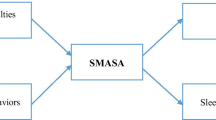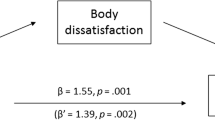Abstract
Studies have found that adolescents’ in-game purchases are related to psychosocial problems. In-game purchases, including loot boxes—which contain random video game items that can be purchased with real-world money—are new systems; therefore, the associated problems have not been fully examined. This study examined whether adolescents planned their in-game purchases and looked into the issues related to purchasing styles. We surveyed 1,052 Japanese high school students (591 females, 443 males, and 18 others, aged 15–18 years) on their monthly allowance, time spent on online gaming, in-game purchases, gaming problems, and depression symptoms. The results revealed that adolescents who made unplanned purchases reported a greater degree of problems than those who planned their purchases. Among the non-planners, loot box users had poorer mental health than nonuser counterparts. These results revealed the relationship between psychosocial problems and problematic gaming, including unplanned purchases and the use of loot boxes among adolescents. Therefore, these relationships become important areas to focus on, to understand problematic online gaming.




Similar content being viewed by others
Data Availability
All data and the used material will be available in the Open Science Framework (https://osf.io/sd3a6/).
References
Adachi, M., Takahashi, M., Hirota, T., Shinkawa, H., Mori, H., Saito, T., & Nakamura, K. (2020). Distributional patterns of item responses and total scores of the Patient Health Questionnaire for Adolescents in a general population sample of adolescents in Japan. Psychiatry and Clinical Neurosciences, 74(11), 628–629. https://doi.org/10.1111/pcn.13148
American Psychiatric Association. (2013). Diagnostic and statistical manual of mental disorders (5th ed.). American Psychiatric Association
Bechara, A., Damasio, A. R., Damasio, H., & Anderson, S. W. (1994). Insensitivity to future consequences following damage to human prefrontal cortex. Cognition, 50(1–3), 7–15. https://doi.org/10.1016/0010-0277(94)90018-3
Boschloo, L., Bekhuis, E., Weitz, E. S., Reijnders, M., DeRubeis, R. J., Dimidjian, S., & Cuijpers, A. (2019). The symptom-specific efficacy of antidepressant medication vs. cognitive behavioral therapy in the treatment of depression: Results from an individual patient data meta-analysis. World Psychiatry, 18(2), 183–191. https://doi.org/10.1002/wps.20630
Brand, M., Fujiwara, E., Borsutzky, S., Kalbe, E., Kessler, J., & Markowitsch, H. J. (2005). Decision-making deficits of korsakoff patients in a new gambling task with explicit rules: associations with executive functions. Neuropsychology, 19(3), 267–277. https://doi.org/10.1037/0894-4105.19.3.267
Brooks, G. A., & Clark, L. (2019). Associations between loot box use, problematic gaming and gambling, and gambling-related cognitions. Addictive Behaviors, 96, 26–34. https://doi.org/10.1016/j.addbeh.2019.04.009
Chambers, R. A., Taylor, J. R., & Potenza, M. N. (2003). Developmental neurocircuitry of motivation in adolescence: A critical period of addiction vulnerability. American Journal of Psychiatry, 160(6), 1041–1052. https://doi.org/10.1176/appi.ajp.160.6.1041
Darvesh, N., Radhakrishnan, A., Lachance, C. C., Nincic, V., Sharpe, J. P., Ghassemi, M., & Tricco, A. C. (2020). Exploring the prevalence of gaming disorder and Internet gaming disorder: a rapid scoping review. Systematic Reviews, 9(1), 68. https://doi.org/10.1186/s13643-020-01329-2
Demetrovics, Z., Urbán, R., Nagygyörgy, K., Farkas, J., Griffiths, M. D., Pápay, O., & Oláh, A. (2012). The development of the Problematic Online Gaming Questionnaire (POGQ). PLoS One1, 7(5), e36417. https://doi.org/10.1371/journal.pone.0036417
Drummond, A., & Sauer, J. D. (2018). Video game loot boxes are psychologically akin to gambling. Nature Human Behaviour, 2(8), 530–532. https://doi.org/10.1038/s41562-018-0360-1
Drummond, A., Sauer, J. D., Ferguson, C. J., & Hall, L. C. (2020). The relationship between problem gambling, excessive gaming, psychological distress and spending on loot boxes in Aotearoa New Zealand, Australia, and the United States: A cross-national survey. PLoS One1, 15(3), e0230378. https://doi.org/10.1371/journal.pone.0230378
Epskamp, S. (2021). Package ‘qgraph’. Retrieved March 8, 2021, from https://cran.r-project.org/web/packages/qgraph/qgraph.pdf
Epskamp, S., Borsboom, D., & Fried, E. I. (2018). Estimating psychological networks and their accuracy: A tutorial paper. Behavior Research Methods, 50(1), 195–212. https://doi.org/10.3758/s13428-017-0862-1
Fam, J. Y. (2018). Prevalence of internet gaming disorder in adolescents: A meta-analysis across three decades. Scandinavian Journal of Psychology, 59(5), 524–531. https://doi.org/10.1111/sjop.12459
Hofmann, S. G., Curtiss, J. E., & Hayes, S. C. (2020). Beyond linear mediation: Toward a dynamic network approach to study treatment processes. Clinical Psychology Review, 76, 101824. https://doi.org/10.1016/j.cpr.2020.101824
Inoue, K., Yokomitsu, K., Irie, T., Matsuyama, M., & Tanaka, M. (2021). The validation and reliability of a Japanese version of the Problematic Online Gaming Questionnaire (POGQ-J). Addiction Science & Clinical Practice, 16(1), 69. https://doi.org/10.1186/s13722-021-00273-3
Johnson, J. G., Harris, E. S., Spitzer, R. L., & Williams, J. B. (2002). The patient health questionnaire for adolescents: Validation of an instrument for the assessment of mental disorders among adolescent primary care patients. The Journal of Adolescent Health: Official publication of the Society for Adolescent Medicine, 30(3), 196–204. https://doi.org/10.1016/s1054-139x(01)00333-0
Jones, P. J. (2020). Package ‘networktools’. Retrieved March 8, 2021, from https://cran.r-project.org/web/packages/networktools/networktools.pdf
Jones, P. J., Ma, R., & McNally, R. J. (2019). Bridge centrality: a network approach to understanding comorbidity. Multivariate Behavioral Research, 1–15. https://doi.org/10.1080/00273171.2019.1614898. Advance online publication
King, D. L., & Delfabbro, P. H. (2018). Predatory monetization schemes in video games (e.g. ‘loot boxes’) and internet gaming disorder. Addiction, 113(11), 1967–1969. https://doi.org/10.1111/add.14286
Koga, Y., & Kawashima, D. (2018). Development and validation of Japanese version of the game addiction scale for adolescents. Japanese Journal of Personality, 27(2), 175–177
Kristiansen, S., & Severin, M. C. (2020). Loot box engagement and problem gambling among adolescent gamers: Findings from a national survey. Addictive Behaviors, 103, 106254. https://doi.org/10.1016/j.addbeh.2019.106254
Larche, C. J., Chini, K., Lee, C., Dixon, M. J., & Fernandes, M. (2021). Rare loot box rewards trigger larger arousal and reward responses, and greater urge to open more loot boxes. Journal of Gambling Studies, 37(1), 141–163. https://doi.org/10.1007/s10899-019-09913-5
Lee, D. (2018). Video game gambling banned in Belgium. BBC News [Internet]. Retrieved March 8, 2021, from https://www.bbc.co.uk/news/technology-43906306
Li, W., Mills, D., & Nower, L. (2019). The relationship of loot box purchases to problem video gaming and problem gambling. Addictive Behaviors, 97, 27–34. https://doi.org/10.1016/j.addbeh.2019.05.016
Lin, C. Y., Potenza, M. N., Broström, A., & Pakpour, A. H. (2021). Internet gaming disorder, psychological distress, and insomnia in adolescent students and their siblings: An actor-partner interdependence model approach. Addictive Behaviors Reports, 13, 100332. https://doi.org/10.1016/j.abrep.2020.100332
Maslowsky, J., Keating, D., Monk, C., & Schulenberg, J. (2011). Planned versus unplanned risks: Evidence for subtypes of risk behavior in adolescence. International Journal of Behavioral Development, 35(2), 152–160. https://doi.org/10.1177/0165025410378069
Mihara, S., & Higuchi, S. (2017). Cross-sectional and longitudinal epidemiological studies of Internet gaming disorder: A systematic review of the literature. Psychiatry and Clinical Neurosciences, 71(7), 425–444. https://doi.org/10.1111/pcn.12532
R Core Team (2019). R: A language and environment for statistical computing. R Foundation for Statistical Computing. Retrieved March 8, 2021, from https://www.r-project.org/
Reyna, V. F., & Farley, F. (2006). Risk and rationality in adolescent decision making: Implications for theory, practice, and public policy. Psychological Science in the Public Interest, 7(1), 1–44. https://doi.org/10.1111/j.1529-1006.2006.00026.x
Shibuya, A., Teramoto, M., Shoun, A., & Akiyama, K. (2019). Long-term effects of in-game purchases and event game mechanics on young mobile social game players in Japan. Simulation & Gaming, 50(1), 76–92. https://doi.org/10.1177/1046878118819677
Shinkawa, H., Irie, T., Tanaka, M., & Yokomitsu, K. (2021). Psychosocial adjustment and mental distress associated with in-game purchases among Japanese junior high school students. Frontiers in Psychology, 12, 708801. https://doi.org/10.3389/fpsyg.2021.708801
Spitzer, R. L., Kroenke, K., Williams, J. B., & Löwe, B. (2006). A brief measure for assessing generalized anxiety disorder: The GAD-7. Archives of Internal Medicine, 166(10), 1092–1097. https://doi.org/10.1001/archinte.166.10.1092
Yokomitsu, K., Irie, T., Shinkawa, H., & Tanaka, M. (2021). Characteristics of gamers who purchase loot box: a Systematic literature review. Current Addiction Reports, 1–13. https://doi.org/10.1007/s40429-021-00386-4
Zendle, D., & Cairns, P. (2018). Video game loot boxes are linked to problem gambling: Results of a large-scale survey. PLoS One1, 13(11), e0206767. https://doi.org/10.1371/journal.pone.0206767
Zendle, D., & Cairns, P. (2019). Loot boxes are again linked to problem gambling: Results of a replication study. PLoS One1, 14(3), e0213194. https://doi.org/10.1371/journal.pone.0213194
Zendle, D., Meyer, R., Cairns, P., Waters, S., & Ballou, N. (2020). The prevalence of loot boxes in mobile and desktop games. Addiction, 115(9), 1768–1772. https://doi.org/10.1111/add.14973
Author information
Authors and Affiliations
Corresponding author
Ethics declarations
Ethical Approval
All procedures performed in this study involving human participants were in accordance with the research ethics committee of Hokusho University and with the 1975 Helsinki Declaration.
Informed Consent
Informed consent was obtained from all individual participants included in the study.
Conflict of Interest
Author TI, Author HS, Author MT, and Author KY declare that they have no conflict of interest.
Additional information
Publisher’s note
Springer Nature remains neutral with regard to jurisdictional claims in published maps and institutional affiliations.
Rights and permissions
About this article
Cite this article
Irie, T., Shinkawa, H., Tanaka, M. et al. Online-gaming and mental health: Loot boxes and in-game purchases are related to problematic online gaming and depression in adolescents. Curr Psychol 42, 20515–20526 (2023). https://doi.org/10.1007/s12144-022-03157-0
Accepted:
Published:
Issue Date:
DOI: https://doi.org/10.1007/s12144-022-03157-0




